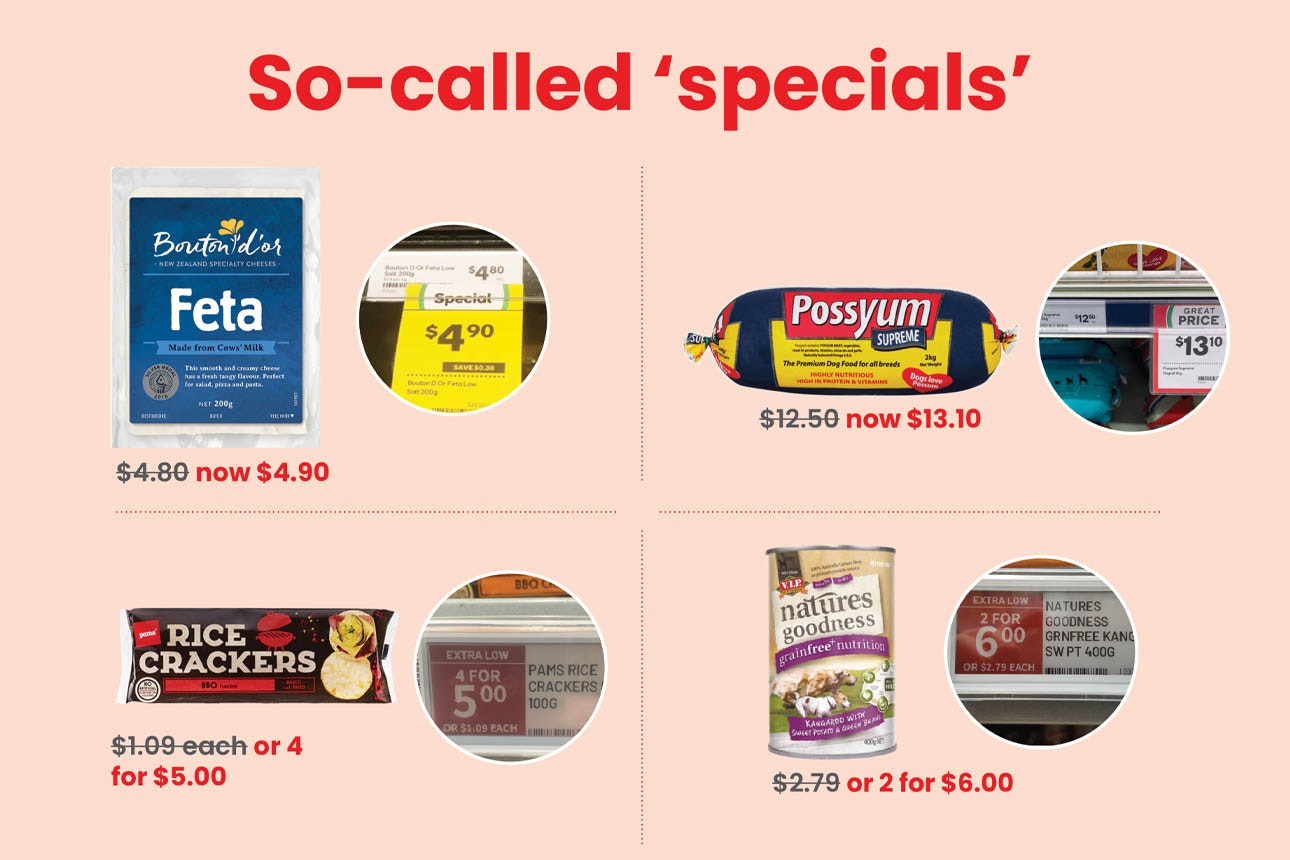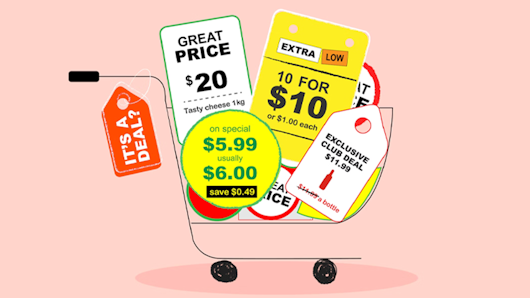In March, we brought examples of over 300 dodgy supermarket specials to the attention of the supermarket bosses, yet New Zealanders continue to share evidence that the supermarkets’ pricing practices are far from fair.
“In the last two months alone, we’ve received over 160 complaints which highlight how often people are experiencing pricing issues at the supermarket," said Gemma Rasmussen, head of research and advocacy at Consumer.
While the supermarkets acknowledged our previous concerns about problematic pricing and promotional practices, we are disappointed that nothing has changed.
“Back in March we put the supermarkets on notice and gave them an opportunity to correct their dodgy practices.
“People cannot afford to be misled and overcharged in this ongoing cost of living crisis. It's disappointing to see the supermarkets haven’t remedied these pricing issues,” said Rasmussen.
We are giving our “dodgy specials” campaign one last push, to collect as much evidence as possible to share with the Commerce Commission in the hope the Commission will investigate the dodgy dealings and hold the supermarkets to account.
“We're calling on New Zealanders to be our eyes and ears at the supermarket one last time to help us gather as much evidence for the Commerce Commission as possible.
“We have designed a new form to make it even easier to share examples of dodgy pricing. You can submit your examples on our website until 30 June.
“The more examples we have, the stronger our case will be.
“With food costs still rising, we know New Zealanders are actively seeking out specials to save cash wherever they can,” said Rasmussen.
“Being able to afford the basics each week is a big stress for many families, so people need to have confidence the prices on supermarket shelves are fair, clear and will be honoured at the checkout. Our concern remains, that people are being misled by supermarkets.”
Many of the complaints we have received detail how awkward customers feel when they request small refunds.
“It’s not a big enough difference to ask the supermarket to change the price so I just paid the higher price,” says Katie from Christchurch.
Rasmussen agrees this is a major concern, and one of the reasons that problematic pricing perseveres in the sector.
“Requesting a refund when you’ve been overcharged, whether it’s $2 or 20 cents might feel silly or more hassle than it's worth complaining about – but you’re well within your rights to do so.
“We encourage all New Zealanders to hold their local supermarket to account, no matter how small the pricing mistake(s) may be.
“If each customer is overcharged by 20 cents that is a significant amount of additional income being pocketed by supermarkets every day – so it’s worth complaining about.
“While we think it's unfair to put the responsibility on shoppers, we don’t think supermarkets plan to up their game and rectify this issue anytime soon. It’s up to us to hold the major supermarkets to account.”
Supermarket “specials” and pricing practices to look out for
Misleading multibuys – where products on a “multibuy” special are actually cheaper if bought individually.
Specials that aren’t specials – where a “special” price is more expensive than the original price.
Mismatched pricing – when an item is charged at a higher price at the till than the shelf price.
Paying for packaging – where the weight of the packaging is included in the total cost of the product.
Pricing that’s hard to understand – there might be more than one price displayed, no original price displayed, multiple prices displayed, or the unit price (e.g. price per kg) is displayed more prominently than the price of the item, giving the impression the product is cheaper than it actually is. There might also be no pricing at all, or loyalty prices are displayed as the default.

“Be sure to send your examples of misleading promotions to us at [email protected] by the end of June - this will be our final call.”

Take on the supermarket duopoly
New Zealanders face one of the most concentrated supermarket industries in the world. The lack of competition means consumers aren't getting a fair deal. It's time for that to change.